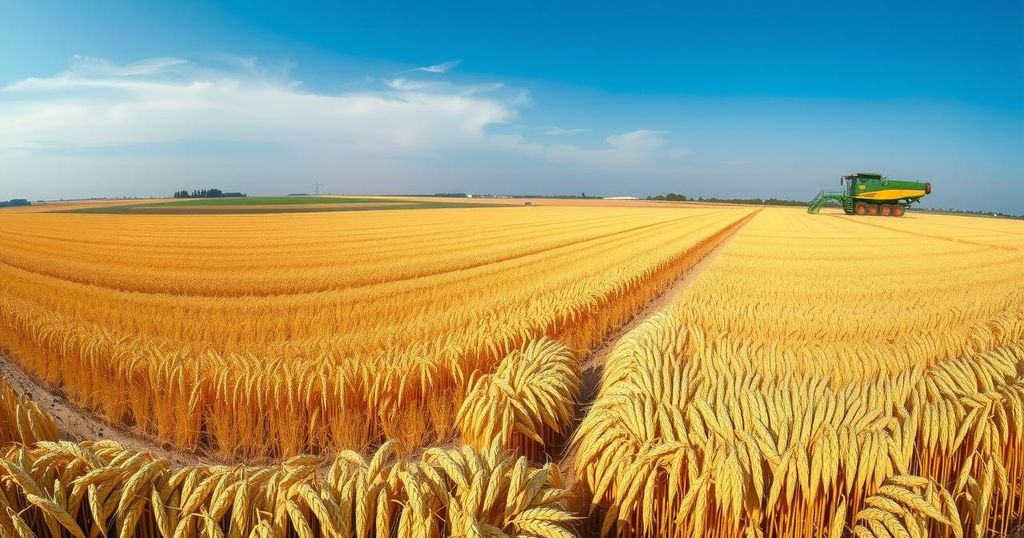Brazilian agriculture is benefiting from the trade war initiated by U.S. President Trump, as stated by SLC Agricola’s CEO, Aurelio Pavinato. The demand from China for Brazilian soybeans is expected to rise significantly, while tariffs imposed on U.S. agricultural goods enhance Brazil’s competitive pricing in the global market. Pavinato remains skeptical about a future agricultural deal between the U.S. and China affecting Brazil’s favorable position.
The trade conflict initiated by U.S. President Donald Trump has emerged as a favorable scenario for Brazil’s agricultural sector, as articulated by Aurelio Pavinato, CEO of agribusiness company SLC Agricola. During a recent analyst call discussing the company’s fourth-quarter performance, he stated, “The trade war continues to benefit Brazilian agriculture, and Brazil as a secure supplier for customers who demand food.”
SLC Agricola is recognized as one of Brazil’s predominant grain and cotton producers. The country’s economic advantage is credited to a heightened demand from China, currently the leading global importer of soybeans, which has increasingly turned to Brazil due to diminishing reliance on U.S. soybean imports since the 2018-2019 trade tensions.
In a notable reaction last week, China instituted retaliatory tariffs of 10% and 15% on $21 billion of American agricultural products, including soybeans and meat. Pavinato predicts that Brazil will supply approximately 80 million metric tons of soybeans to China in comparison to 21 million tons from the U.S. this year, indicating a significant shift in import patterns.
The ongoing trade conflict is reportedly driving up the premiums of Brazilian soybeans over the Chicago benchmark prices, with potential increases of about 10%, mirroring the tariffs imposed by China on U.S. soybeans. Moreover, Pavinato highlighted Brazil’s capability to satisfy all cotton demands from China as the latter reduces its dependence on U.S. corn.
Looking ahead, Pavinato raised concerns over the possibility of a new agricultural agreement between the U.S. and China, reminiscent of past negotiations. He noted that such a deal might adversely impact Brazil by increasing U.S. agricultural imports from China. However, he expressed doubt about the likelihood of this occurring, stating, “We don’t believe it will happen. There may be a deal, but agriculture would not be its pillar. The 2025 trade war seems much more geopolitical than commercial.”
In conclusion, Brazil stands to benefit significantly from the ongoing U.S.-China trade war, especially in the agricultural sector. With increased demand from China for Brazilian soybeans and cotton, the trade dynamics are shifting in favor of Brazilian producers. However, the potential for a new U.S.-China deal poses a risk to Brazil’s advantageous position, suggesting careful observation of future developments is crucial.
Original Source: money.usnews.com




